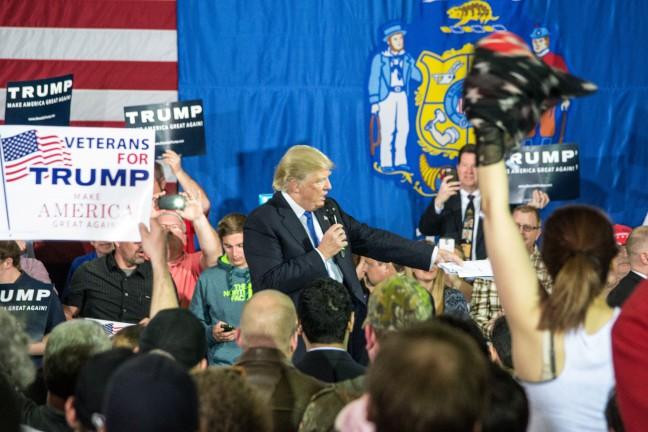As populism and nationalism dominate the stage in European politics, political science experts gathered at a panel to discuss the impact of the current shift toward these areas on both a national and international scale.
In an event hosted by the Alexander Hamilton Society, experts addressed the rise in populism and nationalism in context of the election of President Donald Trump and free trade at a Thursday evening panel at the University of Wisconsin Law School.
At the event, titled “The Rise of Modern Populism and Nationalism,” John Hall, a UW history professor, said the recent surge of populist and nationalist views in political discourse is not a new phenomenon.
Trump’s campaign focused on rallying people to restore the great values of America, which was almost identical to Andrew Jackson’s base during his presidency, Hall said.
Hall said people tend to grow skeptical of established systems as a whole in response to an overwhelming sense of elite and government presence. This skepticism breeds populism, he added.
“[People’s] skepticism of government elites has been reinforced by an alternative media that capitalizes on their discontent,” Hall said.
John Sharpless, a UW history professor, said free trade played a large role in the rise of populism and nationalism. Sharpless said free trade is what “helps make America great” and is a fundamental part of the system.
Aside from free trade, however, America still has a tendency to gravitate toward populism, given that it has been rooted in the country’s foundation, Sharpless said.
“For us at least, it’s been a part of our DNA from the beginning,” Sharpless said.
When it comes to addressing the perception and criticism of populism, Gerard Alexander, an associate professor at the University of Virginia, said many misconceptions exist.
Populism is becoming a “blanket term” people use to describe a political argument they do not favor, Alexander said. He said there is a tendency in political discussion to use populism in a condescending manner and label it as “emotionally-fueled irrationality” rather than an attitude toward how issues should be handled.
Alexander concluded the panel by discussing unconventional and nontraditional ways of thinking when dealing with the world’s problems.
“We really have to ask ourselves, if populism is such a threat to these [established conventions], how well were they really doing in the first place?” Alexander said.


